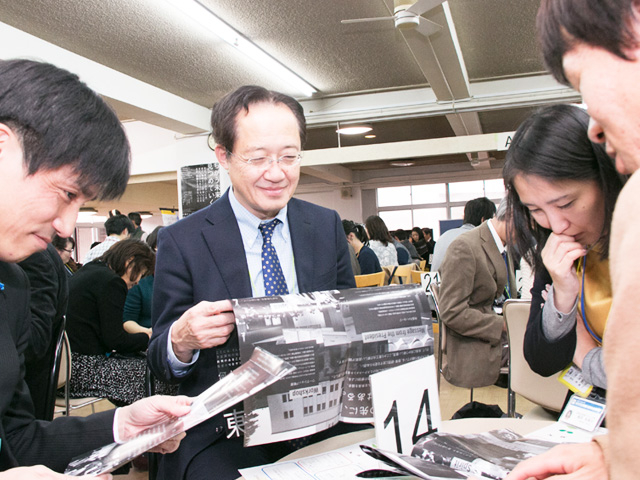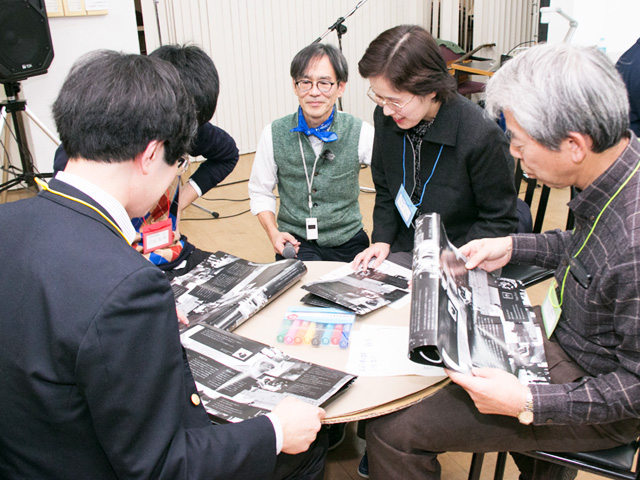The Communication Lounge on Tokyo Tech's Ookayama Campus was a lively place on the afternoon of November 22, 2017 when 207 Tokyo Tech members — 60 students, 53 faculty members, 66 staff members, and 28 alumni and members of management — gathered for the Future of Tokyo Tech workshop, the largest of its kind thus far.
Using the Tokyo Tech 2030 Statement to initiate discussion, participants sat down to share ideas on how to best implement the Institute's shared vision and how each individual of the community can contribute to making Tokyo Tech better, stronger, and more united.
Coats, ranks, and preconceptions were left at the door.
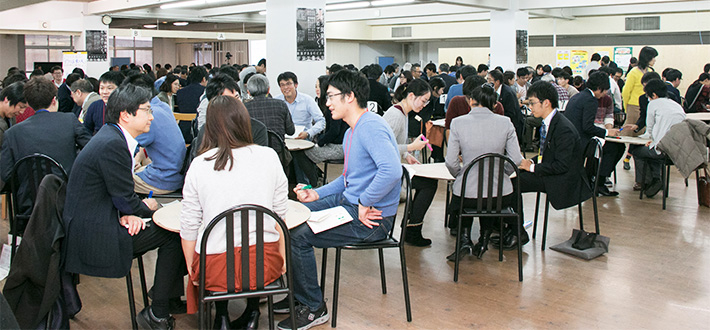
A total of 207 participants
My role: The "I" in the Institute
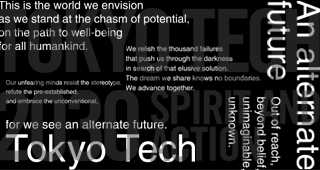
Tokyo Tech 2030
Statement created in spring of 2017
Through a series of workshops in 2016 and 2017, Tokyo Tech students, staff, faculty, and management formulated An alternate future, a declaration of the present and future of Tokyo Tech as seen by its unique community members.
A key component in the latest workshop was to identify the "I" in the Institute — the role each individual member of the Tokyo Tech community can adopt to make a positive impact at the Institute and in society. As with previous similar workshops, the day was also a great chance to create new relationships, fresh ideas, and positive energy.
What are the Institute's strengths? What is your ideal Tokyo Tech?
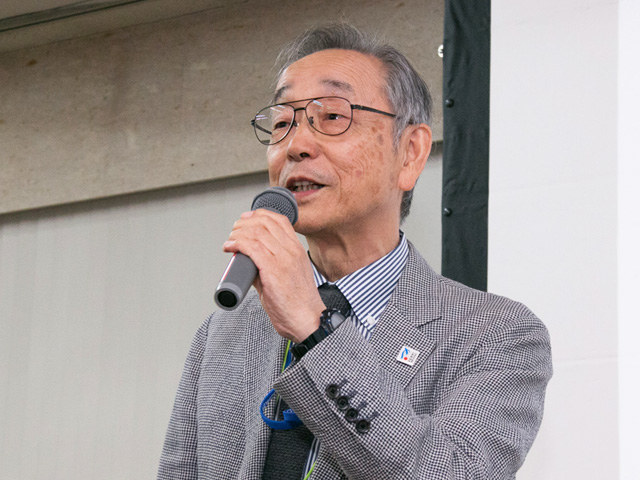
Opening remarks from EVP Okada
Executive Vice President Kiyoshi Okada kicked things off with remarks about the importance of discussing openly the true value offered by Tokyo Tech, and the inclusion of young community members — those who will play central roles in shaping future society — in these discussions.
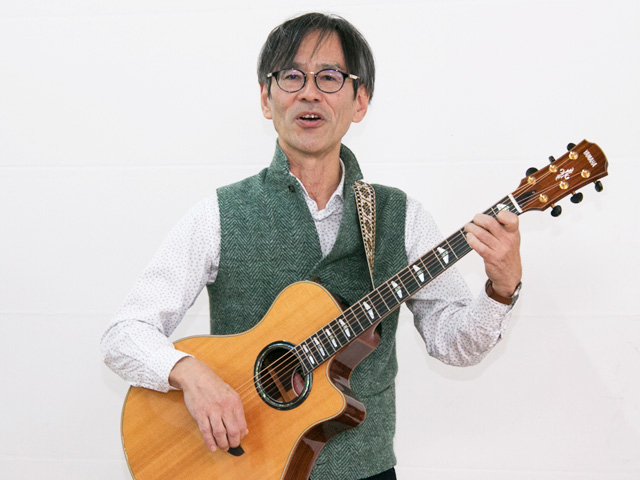
Prof. Nakano's guitar gently weeps
Led by Institute for Liberal Arts Professor Tamio Nakano, group sessions began with some icebreakers, music, and the reading of the Tokyo Tech 2030 Statement. Participants talked about their favorite expressions in the statement before beginning discussions on the day's three topics, which were divided as follows:
- Topic 1 : What is awesome about Tokyo Tech? What are some things that need to be improved?
- Topic 2 : What is your ideal Tokyo Tech? What does unique and revered around the world mean to you? What kind of alternate future do we want for Tokyo Tech?
- Topic 3 : What are the measures we should take to become the best Tokyo Tech we can be? What can I do to make an impact? What kind of alternate future do I see?
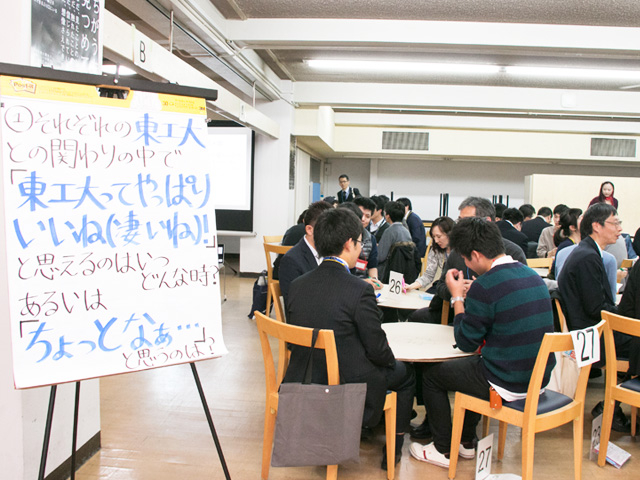
Topic 1: Brainstorming Tokyo Tech's strengths and weaknesses
Each participant addressed these topics from their own viewpoint. Many students focused on university life and their own futures, faculty brought in perspectives of both education and research, staff members spoke about their ideas on administration at the Institute, management shared ideas on their image of Tokyo Tech's future, and alumni expressed what they expected from the Institute.
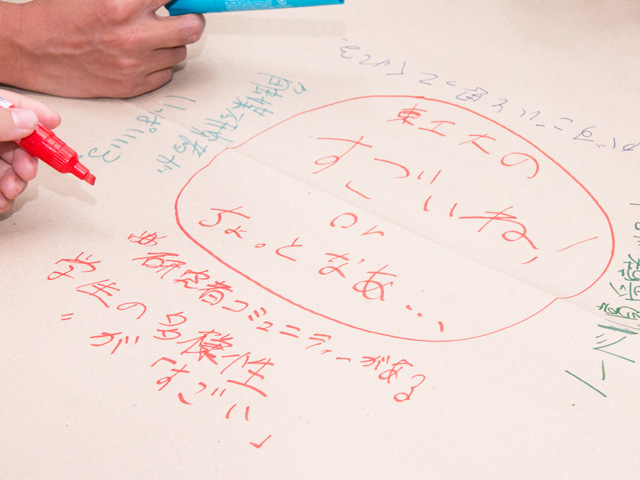
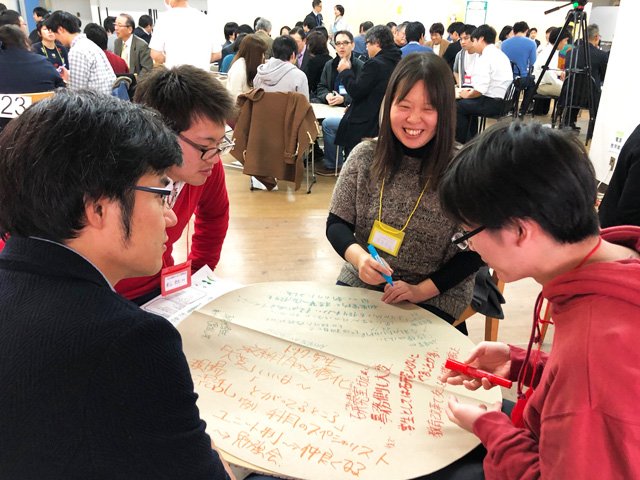
Round cardboard tables used to share thoughts openly
After participants had mixed with other groups throughout the discussion of the three topics, they returned to their home groups to jot down what they had learned. The next step was to brainstorm "my seeds for an alternate future," what each individual could do to help Tokyo Tech achieve its vision. Twenty participants volunteered to share their ideas, which included the establishment of a "Tokyo Tech Science and Technology Hospital" and the formation of extracurricular clubs open to all students, faculty, and staff. Those who agreed with the suggestions could engage by tagging the ideas with "Like" post-it notes.
After closing remarks by President Yoshinao Mishima, the event officially ended with a final shout-out by Kyohei Kondo, a 1st-year bachelor student and the youngest workshop participant. Before going home, many participant stayed around to continue discussions and exchange contact information so they could plan the next action to take regarding their vision.
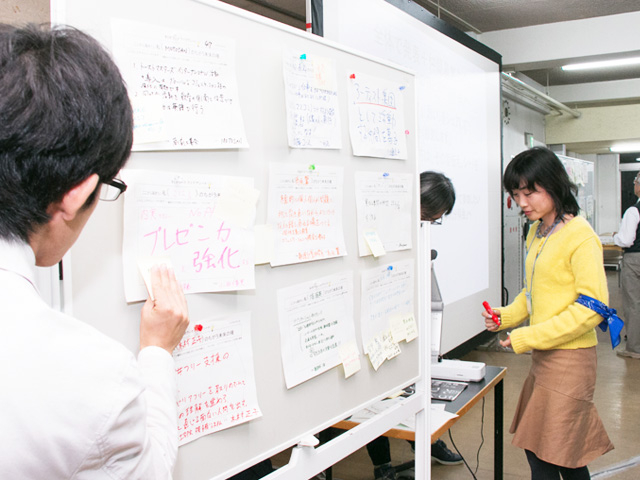
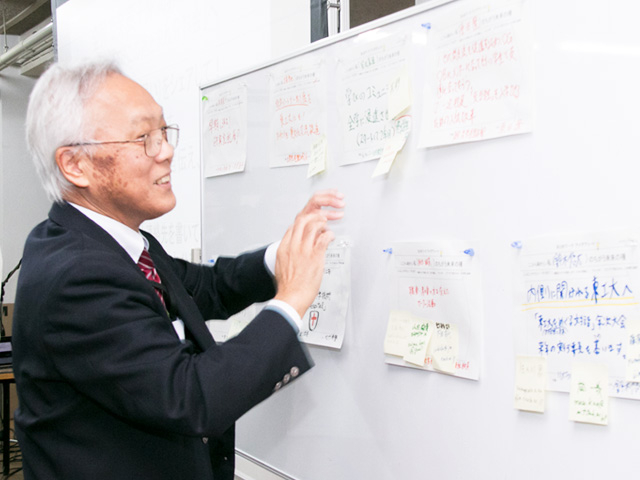
Participants sharing "my seeds for an alternate future"
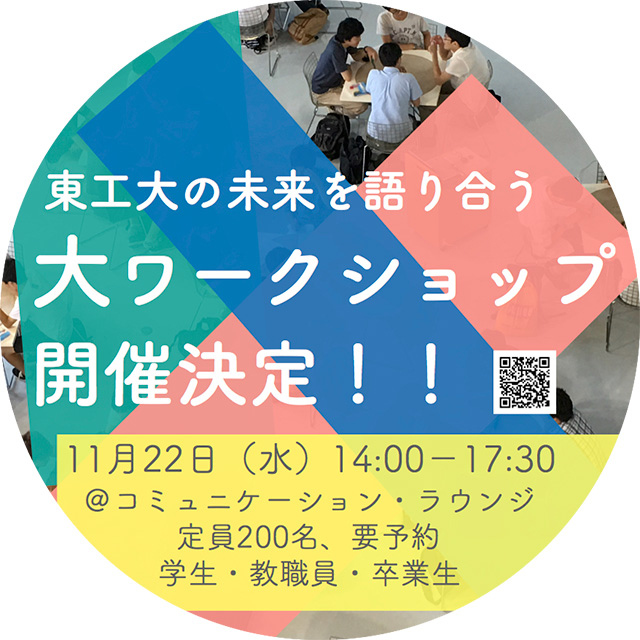
Invitation to workshop visible around campus before the event
Working hard behind the scenes to make this workshop a reality was the Planning Committee, made up of 19 dedicated students of all levels, Liberal Arts Associate Professor Asa Ito, and staff members from the Student Services Department and International Affairs Department. The group sketched out the guiding topics for discussion, and decided on a format to ensure that all 200 plus participants could participate equally. The committee also created invitation posters which were displayed before the event around Tokyo Tech's campuses to encourage community members to join.
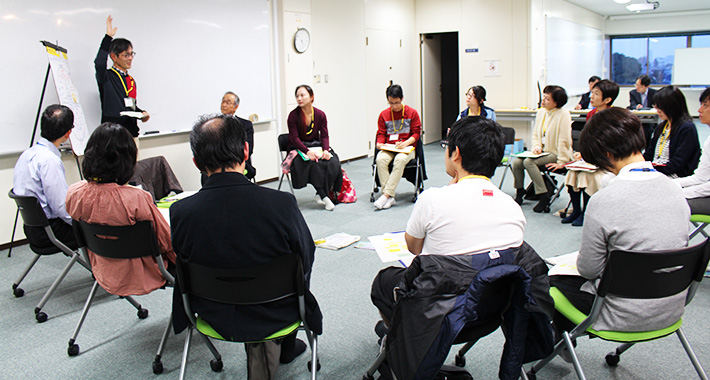
Prof. Nakano speaking with Planning Committee
Feedback from participants
Overall, the feedback from the participants was very positive. A number of participants, regardless of their role at Tokyo Tech, agreed that the event facilitated something that needs to be done at the Institute more often — communication and idea exchange across all levels and layers of Tokyo Tech. Another feeling shared by many after the workshop was the need for more Institute-wide cooperation to increase worldwide awareness of Tokyo Tech's activities and achievements.
Message from the president
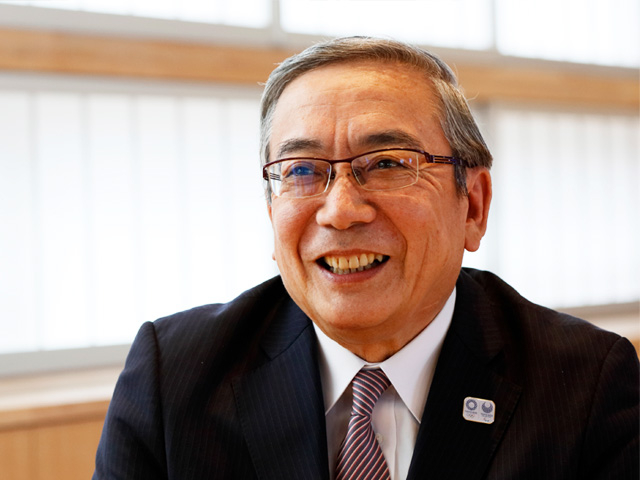
President Mishima
Tokyo Tech aims to be globally recognized as one of the top 10 research universities by 2030, one year before the Institute's 150th anniversary. To realize this goal, it is important for students, faculty, staff, and management to discuss and share ideas regarding Tokyo Tech's future. From late 2016 to early spring in 2017, four workshops were held to facilitate this. In September 2017, an Institute-wide workshop concerning Tokyo Tech's research plan took place. And in late November, 207 students, faculty, alumni, and members of management met to brainstorm what we can do individually to contribute to the future of Tokyo Tech. I am extremely pleased with the heated discussions and abundant ideas that have emerged, and how all Tokyo Tech members are bouncing ideas off each other to improve the Institute. I sincerely hope this kind of activity takes root and becomes a part of Tokyo Tech culture.

An alternate future
The Tokyo Tech 2030 statement, consisting of spirit and action, formulated in a series of workshops by members of the Tokyo Tech community
Tokyo Tech 2030
. Any information published on this site will be valid in relation to Science Tokyo.







